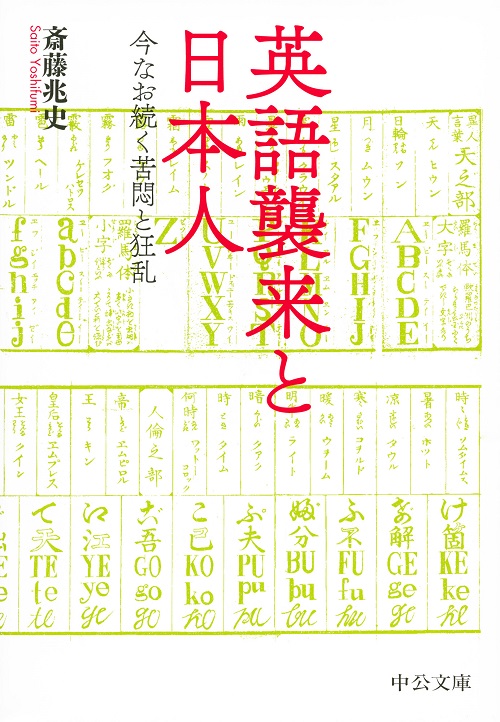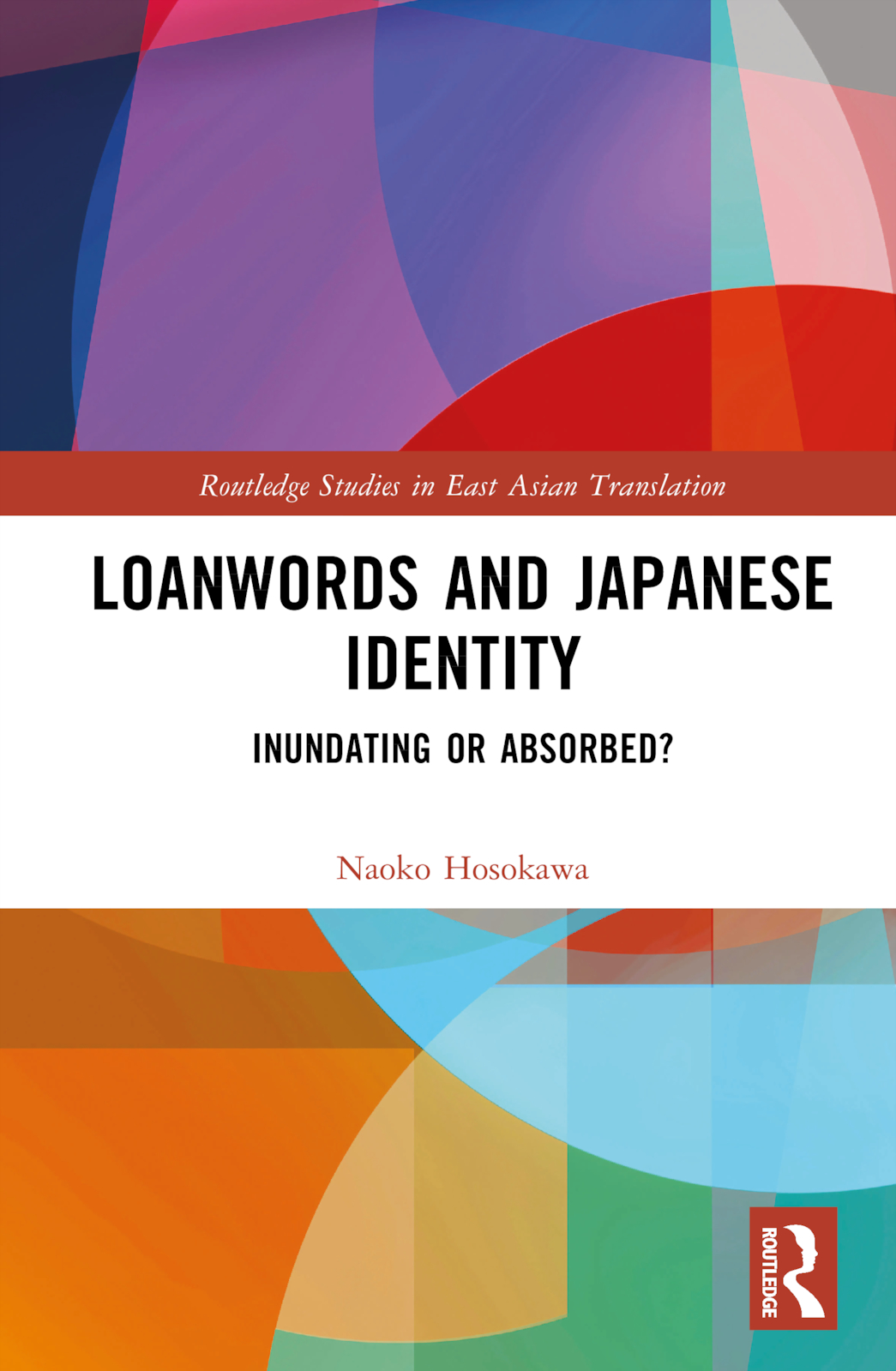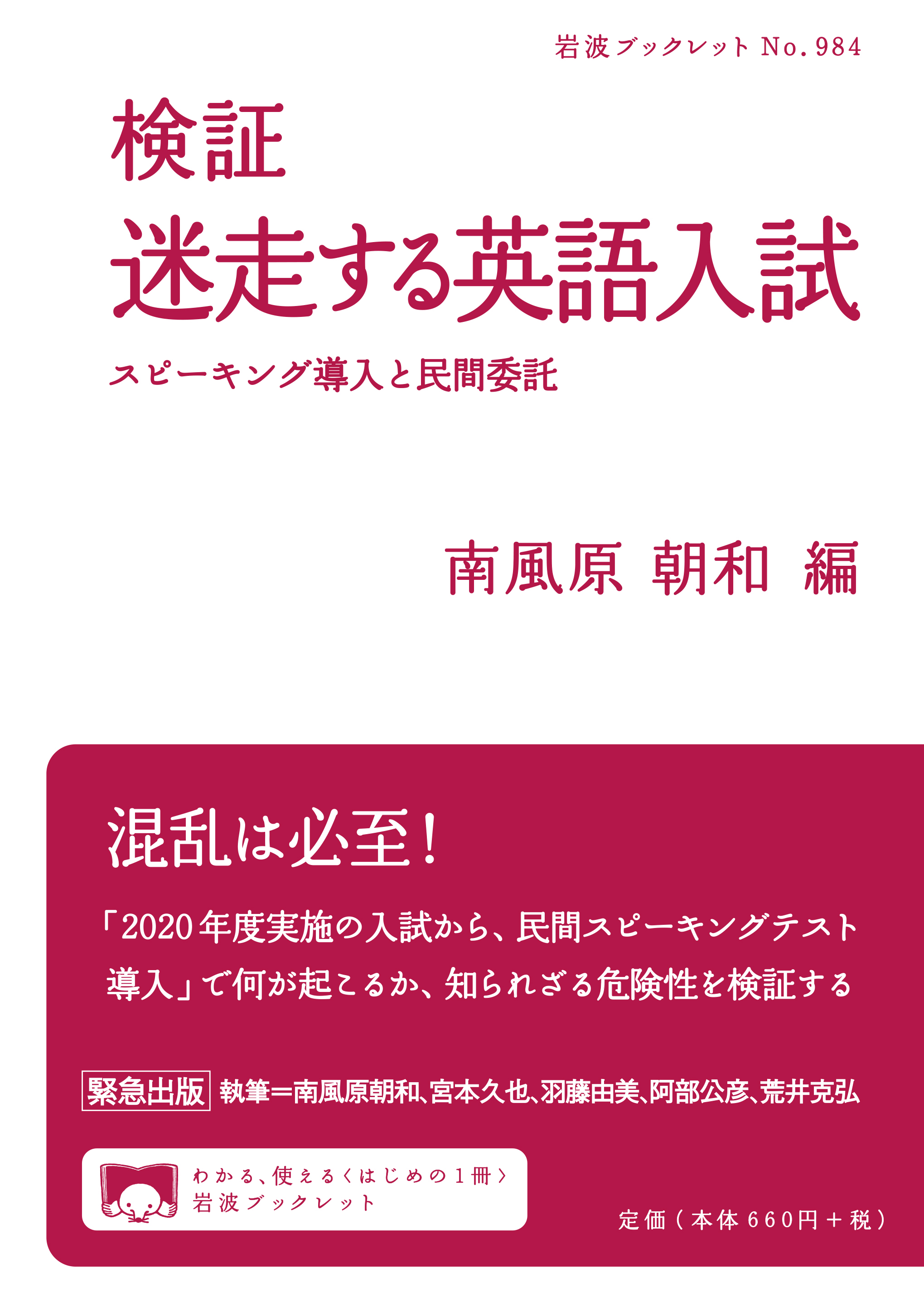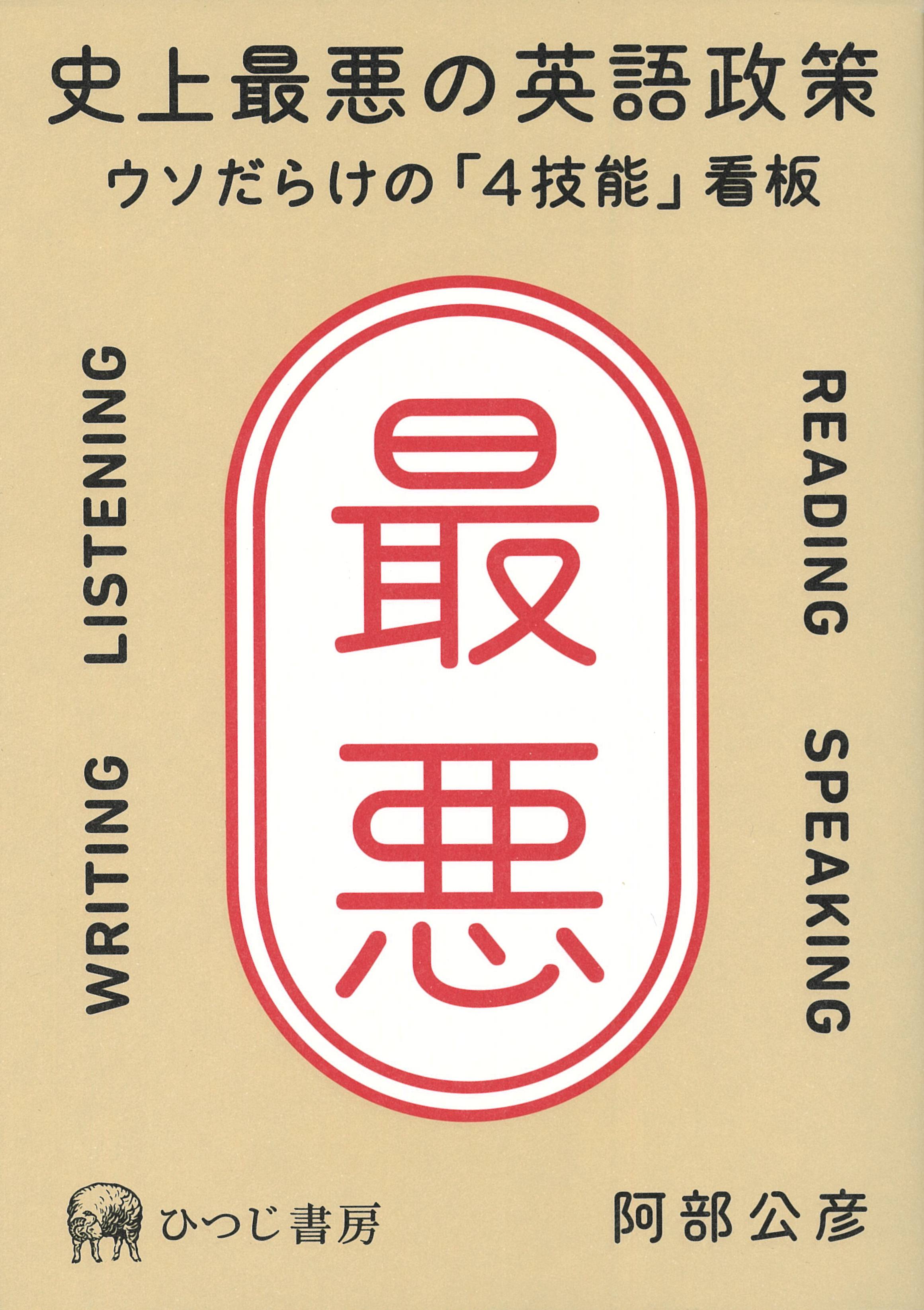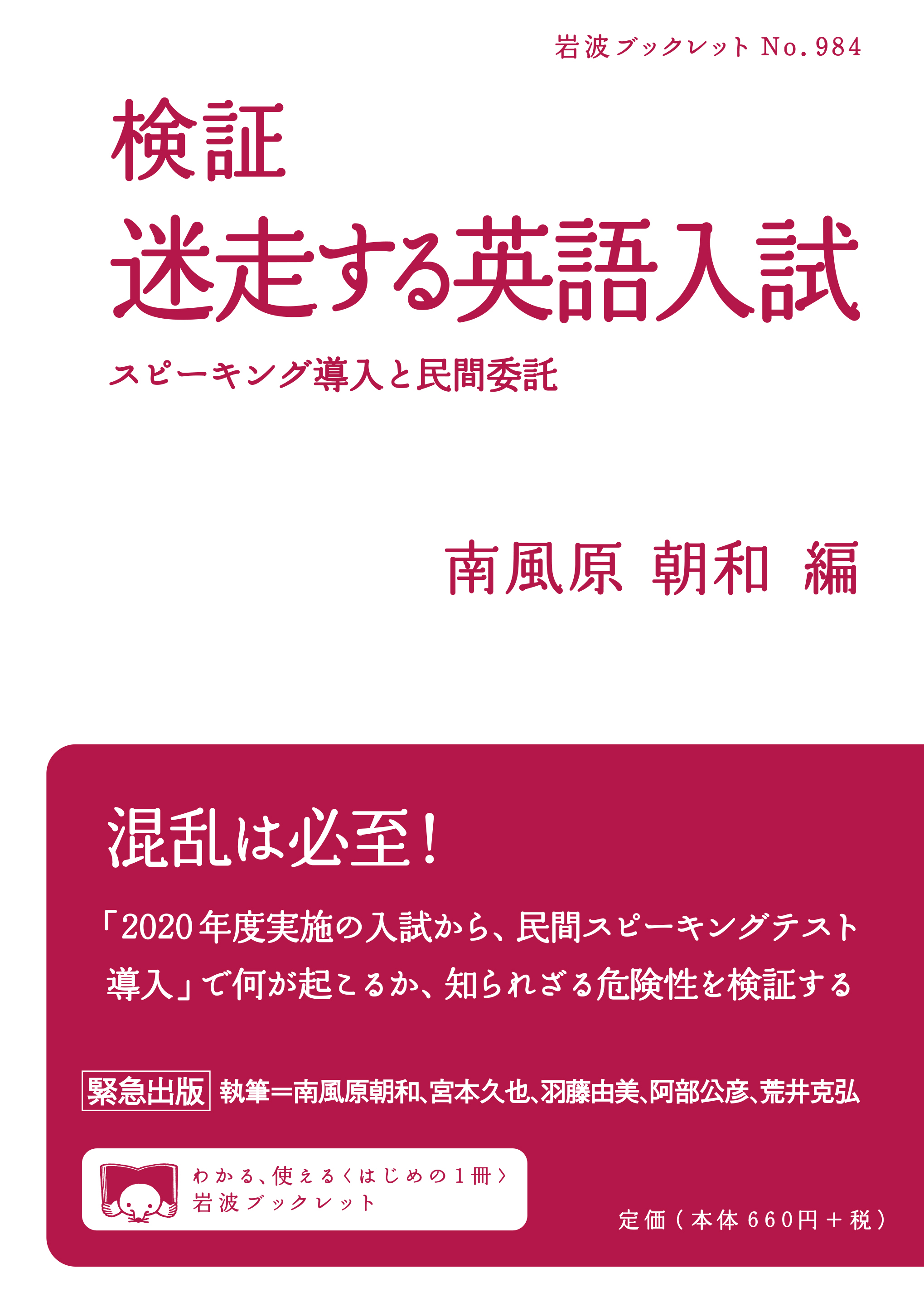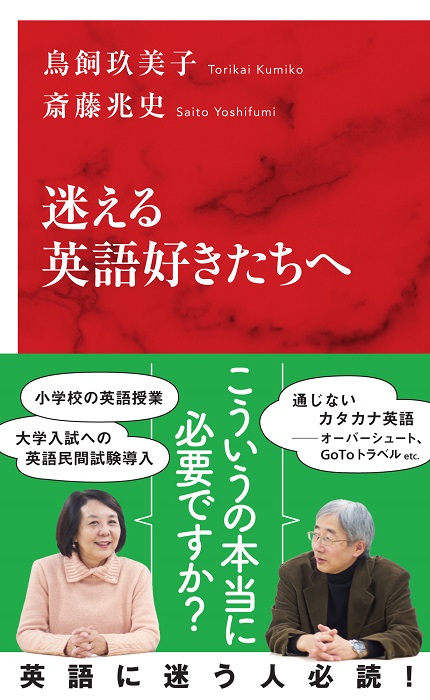
Title
Mayoeru Eigo-zuki Tachie (For English lovers in quest of successful learning)
Size
224 pages, paperback pocked edition
Language
Japanese
Released
October 07, 2020
ISBN
978-4-7976-8060-7
Published by
Shueisha International Inc.
Book Info
See Book Availability at Library
Japanese Page
This paperback book, coauthored by Torikai Kumiko and Saito Yoshifumi, is targeted at the general reading public in Japan and designed to provide those Japanese readers who are interested in learning English with a basic framework for understanding English language teaching (ELT) and some other English-related disciplines and policies. It consists of two transcripts of talks between the authors, which first appeared serially in the magazine kotoba and eight short essays that they newly wrote. Those ten texts are roughly divided into four parts in terms of the main topics they deal with.
The first part (Chapters 1, 2, and 3) problematizes the widely accepted and generally acclaimed idea of developing ‘four skills’ in foreign language use and communication—speaking, listening, reading, and writing—and argues that those skills are just four different visible ways in which the learner’s integrated language ability presents itself and should not be taken as a set of fixed categories. This part also contains a chronological review of the administrative process in which the Ministry of Education, Culture, Sports, Science and Technology (MEXT) discussed and examined, based on the wrongly formed four-skill hypothesis, the possibility of outsourcing some parts (especially the part that concerns ‘speaking’) of English examinations in the National Center Test.
The second part (Chapters 4, 5, and 6) takes a critical look at the rapid increase in number, especially prominent during the covid-19 crisis, of English-origin loan words in Japanese, which can greatly damage the ‘ecosystem’ of the Japanese language. Chapter 4 also critically reviewed the process in which the MEXT introduced English education into primary school education, thereby bringing about various confusions in the primary school classroom.
In the third part (Chapters 7 and 8), the authors retrospectively describe the TV and radio language programs by NHK and the Open University of Japan in which they have been engaged. They also suggest some possible technical improvements on English language programs in Japan. Torikai further predicts that the Internet will play significant roles in remote language learning and teaching in future.
The last part (Chapters 9 and 10) illustrates some ways in which English literature can be used in English language teaching and learning. Recently English literature has been revaluated as a rich source for ELT materials, and the authors describe how their experiences of reading English literature enriched their understanding and practice of English use and how the same process can be widely replicated in language learning.
(Written by SAITO Yoshifumi, Professor, Graduate School of Education / 2021)



 Find a book
Find a book


 eBook
eBook